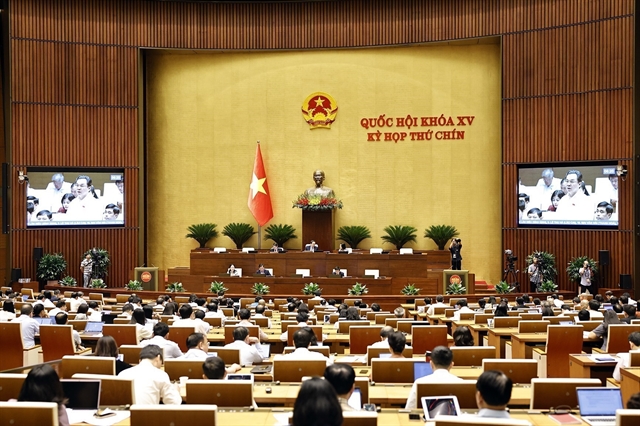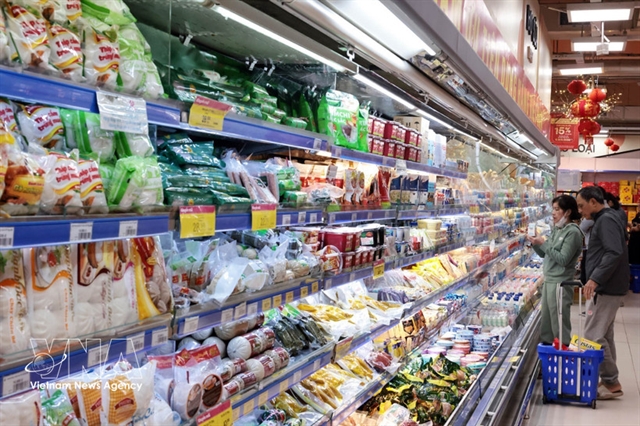 Politics & Law
Politics & Law


|
| The National Assembly convenes on Monday. — VNA/VNS Photo Doãn Tấn |
HÀ NỘI — Press agencies of all formats can enjoy a preferential tax rate of 10 per cent, the National Assembly (NA) heard on Monday during its ongoing ninth session.
The legislature was reviewing a report on a draft amendment to the Law on Corporate Income Tax, presented by Chairman of the NA Committee for Economic and Financial Affairs Phan Văn Mãi.
To affirm the Party and State’s commitment to supporting the press, the NA Standing Committee has adopted the government’s proposal to apply a uniform preferential corporate tax rate of 10 per cent to all types of press. This move aligns with the current tax incentives for print newspapers.
Under the current Press Law, income generated by press agencies, excluding print newspapers, are taxed at the standard rate of 20 per cent.
During the discussions, NA deputies noted that press agencies are undergoing restructuring in line with the Party and State's policy. They are also considered public service units without full financial autonomy, but their primary revenue source – advertising – has been declining due to rapid technological changes, particularly fierce competition with social media platforms.
Tax incentives would ease the financial pressure and allow press agencies to sustain their political and social roles, according to Trà Vinh Province NA Deputy Thạch Phước Bình.
He stressed that local journalism is not only about business, but also plays a key role in information dissemination, education, policy feedback and cultural development.
Revenue saved from reduced taxes could be reinvested in infrastructure, technology upgrades, digital content development and workforce training, thereby enhancing the quality of the national journalism landscape.
Bình also recommended that the drafting committee clearly define eligibility criteria for the tax incentive, specifying that the preferential policy should only apply to licensed press agencies.
He also proposed the establishment of a support fund for innovation and digital training in journalism.
Taxes on public units
The issue of taxation for public service units also drew attention from NA deputies.
Hà Nội Deputy Hoàng Văn Cường argued that it is inappropriate for public health and education units with financial autonomy to be subject to corporate income tax.
He explained that hospitals and schools are currently taxed at a rate of 2 per cent based on revenue, which increases service costs and burdens on patients and students. Imposing such taxes would be inconsistent with the Party and State’s direction on tuition waivers and hospital fee exemptions, he said.
Therefore, he proposed that corporate income tax should only apply to joint ventures or affiliated units in the education and healthcare sectors.
Adding further clarification on this topic, Bình Định Deputy Nguyễn Lân Hiếu said that the current tax authorities interpret any revenue term containing the word ‘service’ as taxable.
“The healthcare system currently has a term called ‘revenue from public services,’ which means most revenue at financially autonomous public hospitals is subjected to taxation,” he said.
Acknowledging the concerns raised by the deputies, NA Deputy Chairman Nguyễn Đức Hải asked the Ministry of Finance, as the lead drafting agency, to further clarify tax regulations for public service units in the draft amendment. — VNS




